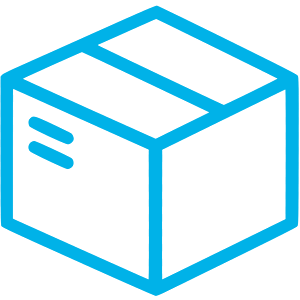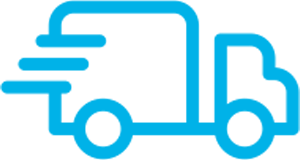Digital management systems are more than just tools for efficiency—they’re enablers of smarter, more resilient organisations. By embedding structure, data, and automation into core operations, these systems help leaders make better decisions, reduce risk, respond faster to change, and focus their teams on higher-value work. Whether you’re managing a business, a public sector agency, or a national program, the right digital systems can transform complexity into clarity—and unlock new levels of performance, adaptability, and impact.
Digital management systems now touch nearly every corner of how modern organisations function—shaping not only how work gets done, but how organisations think, adapt, and grow. The systems listed below reflect the breadth of what’s possible, spanning everything from daily operations to national-scale coordination. While not exhaustive, this list highlights the key categories we regularly work with—and the digital foundations that can help organisations operate more strategically, sustainably, and effectively.

Unifies core business functions like finance, HR, and operations into one system to streamline workflows and improve coordination.

Enables transparent, accountable, and efficient management of public or enterprise financial resources.

Automates employee lifecycle processes including hiring, payroll, leave, and performance tracking.


Tracks stock levels, movements, and reordering to reduce waste and improve supply reliability.

Optimises the flow of goods and information across suppliers, logistics, and internal operations.

Manages in-person sales transactions, integrates with inventory, and improves customer service at the frontline.





Maintains and monitors physical assets to extend lifespan and reduce unplanned downtime.


Coordinates tasks, teams, and timelines to keep projects on track and improve delivery outcomes.






Centralises customer data and interactions to drive sales, service quality, and retention.





Enables easy creation and updating of website content without requiring technical expertise.






Captures, organises, and shares internal know-how to support learning and consistency.





Stores, secures, and controls access to organisational documents and records.




Delivers and tracks online training programs to build skills and ensure compliance.



Manages support tickets and service requests to resolve issues efficiently.




Automates communications and measures engagement across channels to enhance outreach and satisfaction.




Designs and automates recurring workflows to increase consistency and reduce manual effort.

Uses bots to perform repetitive digital tasks, freeing up human capacity for higher-value work.

Connects disparate systems and automates data flows to reduce silos and duplication.







Provides visual dashboards and analysis tools to support smarter, faster decision-making.



Enhances processes with intelligent automation, predictive insights, and language tools.

Ensures consistency and accuracy of core data across systems and departments.

Supports integrated budgeting, procurement, payroll, and performance across government.



Enables transparent, competitive tendering and supplier management.







Tracks audit findings and compliance to strengthen accountability.

Defines standards and controls for data quality, security, and use.






Maps and aligns technology assets with organisational strategy.

Facilitates secure data exchange across systems and institutions.

Publishes public datasets for transparency, innovation, and civic engagement.

Enables secure authentication and legally binding digital transactions.

Manages national identity and credentials for citizens and residents.

Links planning, monitoring, and evaluation to track impact and guide performance.

Supports collaborative drafting and version control for legislation and policy.


Centralises access to public services through a digital front door.

Enables citizens to submit complaints and track resolution transparently.

Engages the public in consultations, surveys, and participatory processes.

Manages public requests for government-held information.
Monitors service delivery, resources, and outcomes across the health sector.


Monitors service delivery, resources, and outcomes across the health sector.



Monitors service delivery, resources, and outcomes across the health sector.

Tracks enrolments, performance, staffing, and infrastructure in education.



Records life events like births, deaths, and marriages, and provides legal identity.

Manages eligibility, payments, and targeting for welfare and safety net programs.

Supports personalised service delivery across justice, health, and social services.




Tracks research projects, grants, outputs, and compliance.

Manages intellectual property rights, patents, and research commercialisation.



Detects, prevents, and responds to digital threats across systems.


Coordinates preparedness, early warning, and emergency response.

Handles real-time coordination of first responders and public safety assets.


Manages policing, incident reports, and crime analytics.



Controls migration, visas, and secure cross-border movement.

Visualises and analyses spatial data to inform planning and service delivery.



Manages property registration, land use, and tenure rights.





Tracks construction, utilities, and asset maintenance across networks.




Tracks environmental data to guide conservation, compliance, and policy.
We work across a wide range of industries, each with its own operational realities, compliance requirements, and strategic goals. The industries listed below are just some of the areas where we have particularly deep experience, but our work extends far beyond these.
Different types of organisations face different challenges when it comes to digital management systems. Whether you’re running a small business, managing a government agency, or coordinating across borders in a multilateral institution, the right approach depends on your scale, structure, and strategic priorities.
Different services for different applications.

By actively monitoring and evaluating their digital systems, organisations gain the clarity to see what’s truly working, catch issues early, and build a stronger case for future investment and improvement.

With a clear digital strategy, organisations can stop reacting to short-term pressures and instead align their systems, people, and decisions around a shared long-term vision—one that actually drives progress.

When organisations understand the trade-offs between different technologies and approaches, they avoid costly missteps and make decisions that fit their goals, context, and capacity—not just the latest trend.

Designing systems around real-world needs—organisational, human, and technical—helps teams avoid friction later, work more effectively from day one, and lay a solid foundation for growth and change.

Rolling out new systems successfully means more than getting them live—it means people actually use them, trust them, and get value from them in their day-to-day work.

When digital systems are treated as living tools—not one-off projects—organisations are better able to adapt, respond, and keep improving long after implementation.
Serious games are a niche and nuanced field. Creating games that are both engaging and outcome-driven requires the kind of multidisciplinary collaboration that sits at the heart of how Lantern works. Our ability to drive change through gamification is strengthened by these additional disciplines we work across.
Benefit from our skills, approach and experience.
We'd love to hear from you!